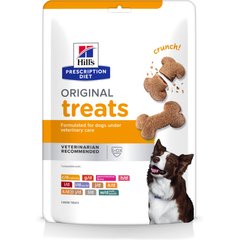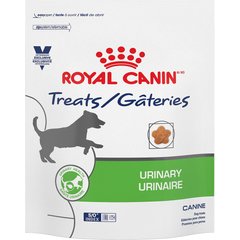Can Dogs Eat Corn?

Photo by Chewy Studios
Corn is a summertime staple. From backyard barbecues to buttery cobs at the dinner table, it shows up just about everywhere this time of year. But can dogs eat corn too?
The answer is yes! Corn is not only safe for most dogs, but it can also be a nutritious part of their diet when prepared and served correctly. Here are the benefits, potential risks, and best ways to feed corn to your pup.
Before introducing any new food into your dog’s diet, always check with your veterinarian.
Can Dogs Have Corn?
Yes, dogs can have corn, but not all forms are created equal when it comes to your dog’s safety.
The best kinds of corn for dogs are plain, cooked corn kernels, either fresh or frozen (with no added salt or butter). Plain, air-popped popcorn can also be safe as a treat, in small amounts.
Avoid feeding your dog:
- Corn on the cob: The cob can be a choking hazard and pose a risk of intestinal blockage.
- Canned corn: Canned corn usually contains added sodium, which isn’t great for some dogs.
- Creamed corn: Creamed corn is often made with dairy and sugar, which aren’t the most healthful choices for your pup.
- Seasoned corn: Butter, salt, pepper, and other spices may cause stomach upset and some, like garlic and onion, can even be toxic to dogs.
Is Corn Good for Dogs?
When served plain and in moderation, corn can be a nutritious addition to your dog’s balanced diet. According to Brittany Caramico, DVM, veterinarian at All Creatures Animal Hospital in Stuart, Florida, corn can:
- Provide energy: Corn is a good source of carbohydrates and protein, both of which can help fuel your dog’s daily activities.
- Support digestion: Corn is rich in both soluble and insoluble fibers that promote gut health and can keep your dog’s digestive system functioning properly.
- Protect eye health: Corn is high in lutein and zeaxanthin, two antioxidants that promote long-term eye health.
- Offer healthful nutrients: Corn contains linoleic acid, an omega-6 fatty acid that supports skin and coat health, and vitamin C, which supports the immune system and helps protect cells from oxidative stress.
- Be a low-calorie treat option: One ear of corn contains just 90 calories, making it a relatively low-calorie treat when portioned appropriately for your pup.
Is Corn Bad for Dogs?
But when it comes to dogs and corn, there are some downsides too. While dogs can eat corn as a treat or mixed in with their regular food, Dr. Caramico says to keep these things in mind:
- The cob can be a choking hazard. The hard cob is extremely difficult to chew, so it can be a choking hazard. It can also cause a life-threatening intestinal blockage if ingested.
- Too much can cause stomach upset. As with any new food, giving your dog corn may cause gastrointestinal upset, such as vomiting or diarrhea.
- The calories can add up. While corn is relatively low in calories, they can add up quickly. Make sure you’re factoring calories from corn into your dog’s daily recommended totals.
- It can trigger an allergy. While it’s not very common, dogs with a corn allergy may experience symptoms like itchy skin, ear infections, or digestive issues after eating it. If your dog shows any unusual signs after trying corn, stop feeding it and talk to your vet.
How Much Corn Can My Dog Eat?
Corn should be an occasional treat, not a dietary staple unless it’s included as part of a nutritionally complete and balanced dog food. As a general rule, all treats should make up no more than 10% of your dog’s total daily calories. The remaining 90% should come from high-quality dog food that meets their nutritional needs.
Here’s a helpful guide to determine serving sizes based on your dog’s size:
| Dog Size | Serving Size | Frequency |
|---|---|---|
| Extra-small dogs (2–10 pounds) | 1 teaspoon | 2–3 times per week |
| Small dogs (11–20 pounds) | 2 teaspoons | 2–3 times per week |
| Medium dogs (21–50 pounds) | 1 tablespoon | 2–3 times per week |
| Large dogs (51–90 pounds) | 2 tablespoons | 2–3 times per week |
| Extra-large dogs (91+ pounds) | 3 tablespoons | 2–3 times per week |
Of course, these are just general recommendations. Talk to your vet about the exact amount to feed your dog based on their breed and health history.
How To Safely Feed Corn to Your Dog
Before you toss your dog a bite of corn, it’s important to know how to prepare it safely. These tips can help minimize risk:
- Start with plain corn. Whether it’s fresh, frozen, or cooked, make sure there’s no added salt, butter, or seasoning. Some seasonings, like garlic or onion powder, can be harmful.
- Wash thoroughly. If you’re using fresh corn, rinse it under cool water to remove any dirt, pesticides, or debris.
- Cook it. Boil or steam the corn in plain, unsalted water until it’s softened. Avoid grilling or roasting it with oil or seasoning.
- Let it cool. Hot corn can burn your dog’s mouth.
- Cut the kernels off the cob. If you’re using corn on the cob, cut the kernels off and discard the cob securely. It’s best to put it in a closed trash can so a dumpster-diving pup can’t get to it.
Once you’ve safely prepared the corn, here are some simple ways to serve it:
- Use it as a topper. Sprinkle a spoonful of plain corn over your dog’s kibble or wet food to add some variety.
- Offer it as a snack. Give your dog a small handful of plain kernels for a fun, low-calorie treat.
- Make DIY treats. You can mix corn into homemade dog biscuits, frozen pup-sicles, or smoothie bowls (just make sure your recipe is vet-approved).
Store-Bought Dog Treats With Corn
If you don’t want to make your own, you can also buy corn-based dog treats. Some highly rated options include:
Recommended Products
My Dog Ate Too Much Corn—What Do I Do?
If your dog ate too much corn, watch them closely. While plain corn is generally safe in small amounts, eating too much at once can lead to digestive upset.
Here are some signs your dog might have eaten too much corn:
- Vomiting
- Diarrhea
- Gas or bloating
- Loss of appetite
- Lethargy
If you notice any of these signs, monitor your dog and call your vet if they’re severe or don’t resolve in 24 hours.
If your dog ate a corncob, call your veterinarian right away. It’s always better to be safe when it comes to potential intestinal blockages or serious digestive issues.
FAQs About Corn for Dogs
Q: Can puppies eat corn?
A: Yes, puppies 8 weeks of age or older can eat corn in very small amounts and only occasionally. Puppies have sensitive stomachs, so it’s best to introduce corn slowly and always consult your vet before adding new foods.
Q: Can dogs eat corncobs?
A: No, never! Corncobs can cause a life-threatening intestinal blockage if ingested and pose a choking hazard. If your dog does eat a cob, call your veterinarian immediately or take your dog to the emergency clinic as soon as possible, especially if you notice any vomiting, loss of appetite, diarrhea, difficulty pooping, stomach pain, or lethargy.
Q: Can dogs eat corn on the cob?
A: Not in its entirety. If you want to give your dog fresh corn from the cob, make sure to cook it, cut the kernels off, and just give your dog the corn.
Q: Can dogs eat corn tortillas?
A: Yes, dogs can eat a small amount of corn tortilla as a treat.
Q: Can dogs eat sweet corn?
A: Sweet corn is not the best option for dogs. Depending on how it’s made, it may contain lots of salt, sugar, or fat, which can make some dogs sick.





